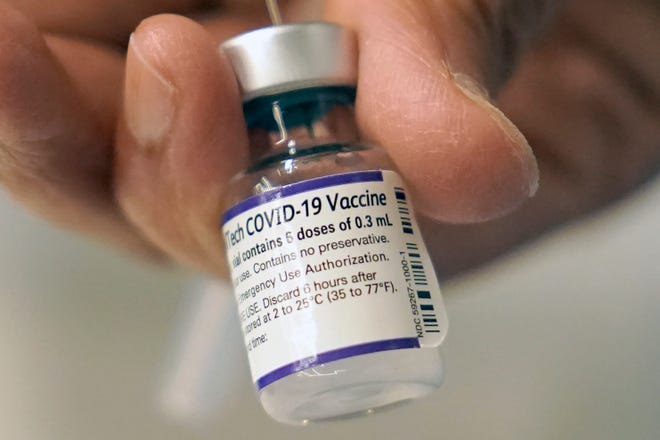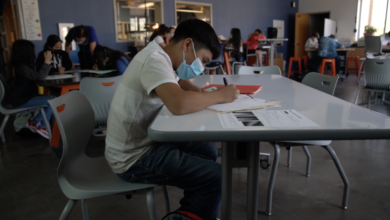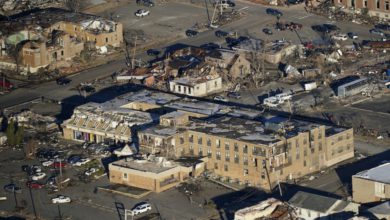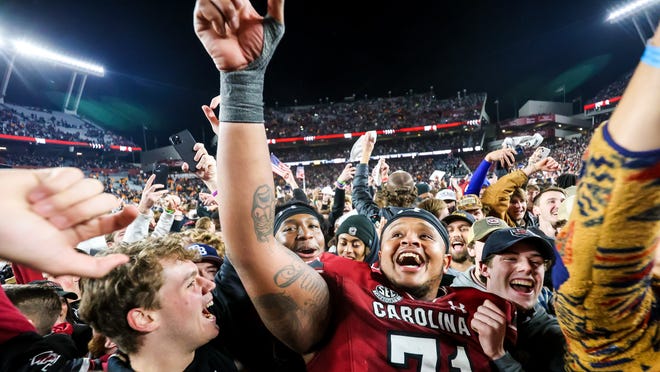
WASHINGTON – A majority of the Supreme Court signaled Friday it is skeptical of the Biden administration's authority to require millions of Americans who work for large companies to be vaccinated against COVID-19 or submit to weekly testing, as the high court is poised to weigh in substantively on the issue of vaccine mandates for the first time during the coronavirus pandemic.
With the number of infections soaring because of from the omicron variant across the nation, several of the court's conservative justices indicated that while they believe states may have power to set vaccine requirements it is a different story for federal agencies.
Chief Justice John Roberts asserted that the more federal agencies attempt to create their own vaccine rules the more it appears the federal government is trying to "cover the waterfront" and require vaccines or other COVID-19 policies for the entire population. That, Roberts suggested, should probably be a decision for Congress.
"This has been referred to – the approach – as a workaround," Roberts said of the requirements. "This is something that the federal government hasn't done before."
Associate Justice Neil Gorsuch said it is states that usually set health requirements.
"If there is an ambiguity, why isn't this a major question that therefore belongs to the people's representatives in the states and in the halls of Congress?" he asked.
More:Supreme Court has allowed state vaccine mandates. Biden's is a harder case
More:Supreme Court to hear challenges to Biden vaccine-or-testing mandates
The court's three liberal justices pushed hard on both the need for Americans to get COVID-19 vaccinations but also the federal government's authority to regulate the danger COVID-19 poses in the workplace and to the national economy. Associate Justice Elena Kagan asserted it is federal agencies, not the courts, that have the expertise needed to make decisions about addressing communicable diseases.
"It's an extraordinary use of emergency power occurring in an extraordinary circumstance, a circumstance that this country has never faced before," Kagan said.
Several of the justices asked about issuing an order quickly that would temporarily block enforcement of the employer requirement while the court takes more time to consider the case – signaling it's an approach they are considering. The Labor Department has said it will begin issuing penalties for failure to comply with some of the rules Monday.
Underscoring the challenges workplaces face across the nation in dealing with COVID-19, a portion of the arguments took place remotely. Associate Justice Sonia Sotomayor took part from her chambers, though court officials did not explain why she chose not to join the proceedings in the courtroom. Two of the six arguing attorneys took part by phone, with one acknowledging he did so because he tested positive for COVID-19 the day before.
The high court's nine justices have all been vaccinated and and received booster shots, the court has said.
President Joe Biden announced a series of vaccine policies in November, including for large employers, millions of health care workers and federal contractors. Employers with at least 100 employees were required to stand up vaccine-or-testing programs or face penalties of nearly $14,000 per violation. That requirement alone is estimated to affect two-thirds of the nation's private workforce, or more than 80 million Americans.

The Supreme Court was set to hear arguments later Friday in a challenge to the administration’s vaccine mandate for health workers who are employed at facilities that accept federal funding, such as through Medicare. The Biden administration has estimated that separate requirement will affect roughly 10 million workers.
The Occupational Safety and Health Act of 1970 allows OSHA to craft an emergency rule, or emergency temporary standard, when a "grave danger" exists that could expose workers to "substances or agents determined to be toxic or physically harmful or from new hazards." Much of the legal wrangling in the case has involved whether the law allows OSHA to regulate a virus as a dangerous workplace substance.
The litigation raises fundamental questions about an agency’s power that could have implications far beyond the pandemic, experts say. Some conservatives on the court, such as Associate Justice Clarence Thomas, have long opposed allowing federal agencies to promulgate regulations without specific authority from Congress.
Federal appeals courts have split over the OSHA and health care worker requirements.
The New Orleans-based U.S. Court of Appeals for the 5th Circuit blocked implementation of the OSHA regulation in November, calling it "staggeringly overbroad." But weeks later, the Cincinnati-based U.S. Court of Appeals for the 6th Circuit lifted that order with a 2-1 majority finding the rule appeared to be within the agency’s power.
Lower courts have also disagreed over the legality of Biden’s mandate for health care workers, with the Atlanta-based U.S. Court of Appeals for the 11th Circuit allowing the requirements to continue but the 8th and 5th Circuits blocking its enforcement.
Source link








